SEO: How to Estimate Search Volume Metrics for Blog Topics

A while back, I wrote an article about finding blog post topics with a high search volume. Most of this post is about finding the topics, with a section at the end about estimating the search volume data to pick the best topics.
In the five years since I wrote that post, my viewpoint has changed much regarding search volume. Back then, I figured that search volume was a critical metric. Finding keywords with high search traffic (but plausible competition, so you're not wasting your time) was the best technique for content ideas.
These days, however, I have a slightly different perspective. It's been working out for me for the last few years, so I'm going to share it here today.
 30 Second Summary
30 Second Summary
You shouldn't waste time estimating search volume for keywords. Search volume tools vary and aren't reliable. Focus on overall traffic to competing pages and their engagement signals. Check organic traffic, social shares, comments, and backlinks. Keywords don't rank alone; search engines look at content as a whole. Choose topics by judging overall relevance, competitiveness, and enduring interest rather than isolated metrics. Aim for high-quality content and user experience.
Estimating Search Volume is a Waste of Time
That's right; estimating the search volume for a given keyword is largely a waste of time. I don't pay a ton of attention to picking the "right keywords" these days, and neither should you.
There are two reasons for this.
1. Every tool you can use to estimate search volume has a unique data set.
Every SEO keyword estimation tool has a limited set of information to work off of. Some of them have more extensive monitoring networks than others, of course, but they all work in different ways.
Three different tools will give three different estimations of a single keyword's search volume and the percentage of total traffic relative to their other content.
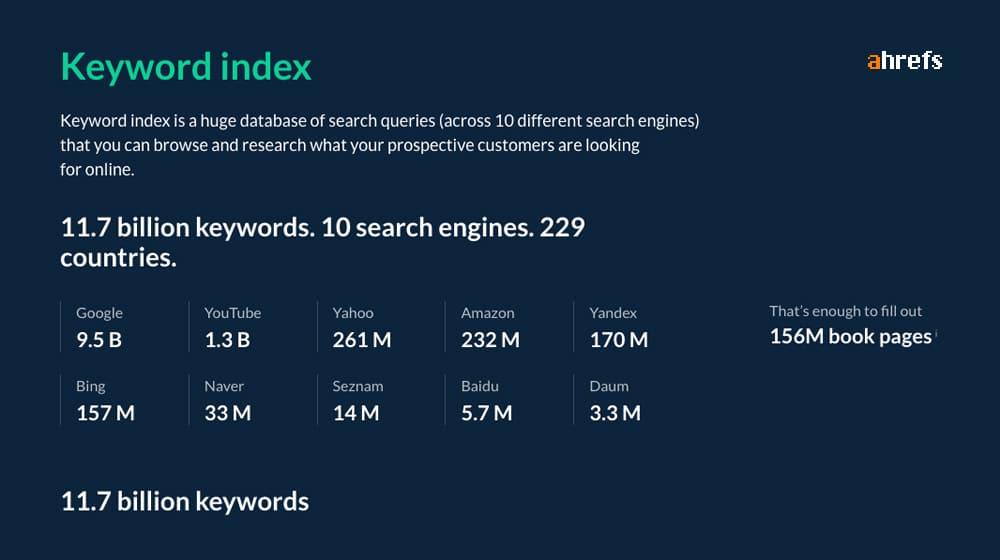
More importantly, search volume changes dramatically over time. I don't just mean some keywords have time-sensitive contexts, like "winter sale" only getting worthwhile traffic during autumn and winter. Some keywords have trends that don't even have external influences, and they just wax and wane like the tides, with minimal indication of why.
Some can also be influenced by, for example, paid ads. If a big company is paying for ads for a few keywords, people will have that topic on their minds from seeing it around on Facebook or a publisher network or what have you. Even if they don't click those ads, they'll be more likely to search that topic, increasing search volume while the topic is in the public consciousness.
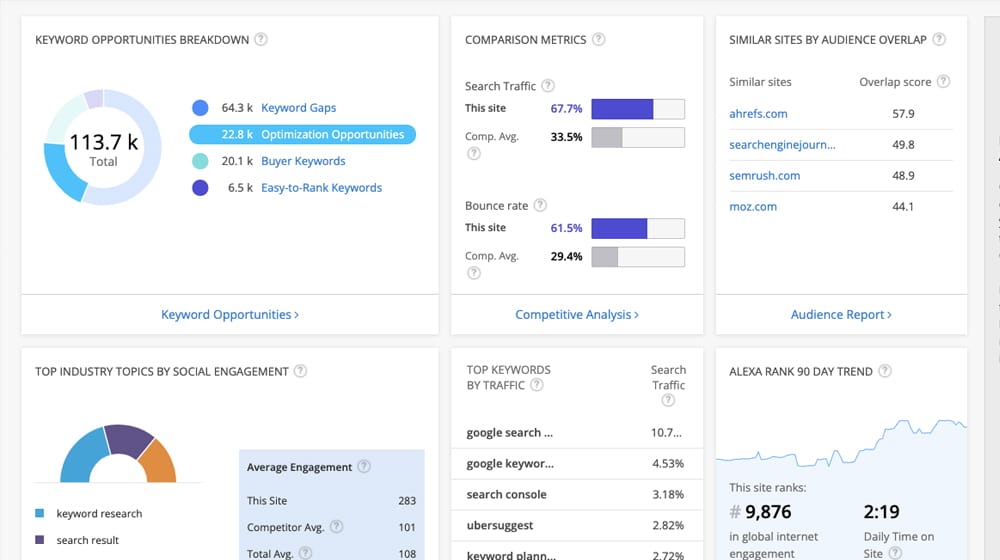
On top of this, search volume is only really relevant for PPC. It's helpful in the context of Google Ads (formerly Google Adwords), where the search volume is a rough estimator of the CPC budget you will be spending to reach that audience. It doesn't have a lot of impact on organic SERPs and thus shouldn't be a driving factor in your choice of keywords.
And, as I mentioned, different SEO tools have different ways of estimating search volume, and some use much larger datasets than others, with the pinnacle being Google's keyword planner.
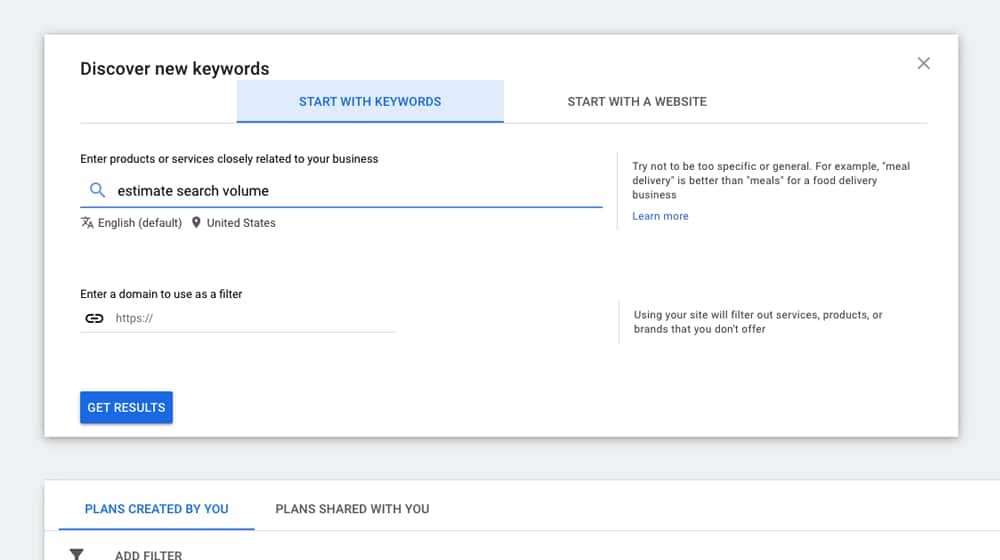
Google's keyword estimator is the only one I trust for rough keyword estimations. Even so, I don't necessarily assume that it will be the most valuable resource for organic rankings in the future.
2. Blog posts don't rank for just one keyword.
This phenomenon seems like a relatively new change, except it's not. What do I mean?
Google and other search engines work by finding a piece of content and indexing it, and it will tear that post into parts and index them all as related and relevant to that post. Every word and phrase in that post is a potential search query. If you were to go to Google and search for "every word and phrase," - technically, this post would come up somewhere because I used that phrase. Would it be a top-ranking keyword?
Of course not, because that's not a focus keyword and it's not contextually important; this post wouldn't be a valuable organic search result to a reader performing that query.
You might choose a focus keyword for your post, but when your post is indexed, is that the exact match keyword that Google search will pick? Will it be the only keyword your blog post surfaces more?
Most definitely not. Google will pick dozens, if not hundreds, of focus keywords for the post.
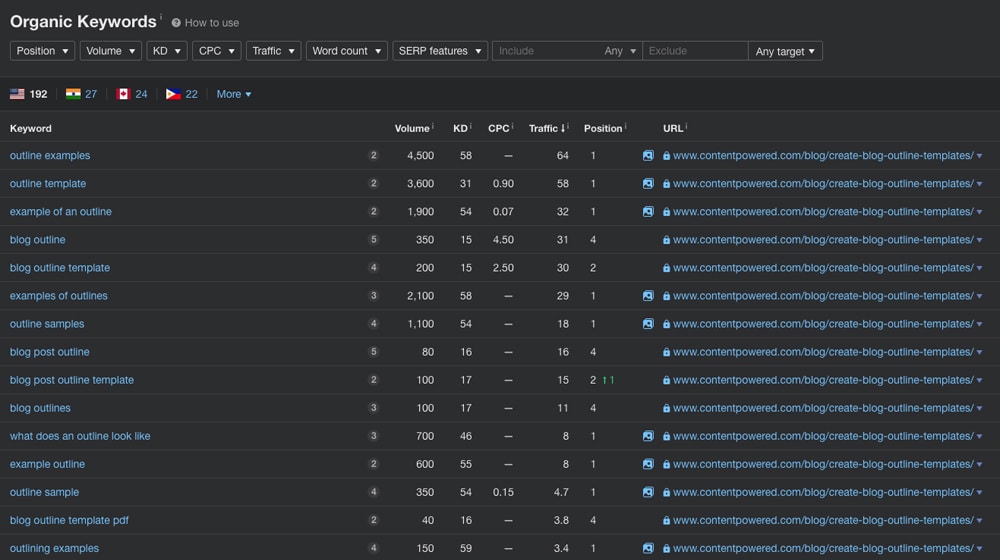
These cover two bases:
1. Keywords you use in the post. "Estimate Search Volume" would be a keyword in this category for this post.
2. Keywords you don't use in the post. I don't use the phrase "search volume guesstimate" in this post (outside of this one instance, but pretend I didn't use it here), but it can still show up.
That second one is an effect of how Google works with LSI: Latent Semantic Indexing.
This process is why, when you search Google for a word or phrase today, you often get search results that don't include that word or phrase. In the past, if that happened, you would think it meant Google was terrible and isn't indexing content properly. These days, though, it's an advanced feature.

Latent Semantic Indexing allows Google to serve results to people who don't know how to search for what they want to find. It's a common problem and one you run into a lot as a blogger. People don't have expert-level vocabularies, even within their industries. They might not know the search terms, or they might not know a foreign language word for a concept, or they might not know enough to know how to ask a question in a relevant way.
Even though Google isn't sentient (yet), they will give the users accurate results for the searches that they perform, rather than what they asked for.
Do you see what I mean?
We create blog content that converts - not just for ourselves, but for our clients, too.
We pick blog topics like hedge funds pick stocks. Then, we create articles that are 10x better to earn the top spot.
Content marketing has two ingredients - content and marketing. We've earned our black belts in both.
This gradual change is why, over the last 5-10 years, people have gone from spammy SEO strategies such as "you need to use your keyword X times and Y number of variations of your keyword Z times" to "just write about your topic; Google will pick up on it."
Google doesn't necessarily care about specific keywords anymore. Or, well, they do, but not in the way you intuitively think. Every keyword you use is a lattice or a quantum entanglement of related keywords and concepts.

LSI is frustrating sometimes as a user, especially when you're looking for one specific meaning for a keyword that otherwise has a different (but more popular) meaning. Google will try to satisfy the needs of the largest and most common audience first. They've even started ignoring quotation marks sometimes, which is irritating.
All of this is to say: search volume doesn't matter because specific keywords don't matter. The search volume for a primary keyword for your post only tells part of the story, and it's a small part, getting smaller every year. A page doesn't rank for one keyword, it ranks for hundreds or even thousands of long-tail keywords, and it's not very easy to accurately measure traffic for those keywords.
You should look at all of the high-ranking keywords that competing content is ranking for to see if they are valuable to you in aggregate.
How to Estimate Search Volume the Right Way
So, if the keyword search volume isn't a valuable metric, what should you do instead to find a good blog topic and promising keyword ideas?
I like to look at two primary metrics.
1. Look at overviews of organic traffic.
Remember that most keyword search volume estimators are PPC tools. Your blog, though, is an organic tool. So, look for organic traffic numbers.
The best you can get is tools like Ahrefs or SEMRush. These tools have huge indexes, nearly as large as Google's, but harvest and present their data in different ways.
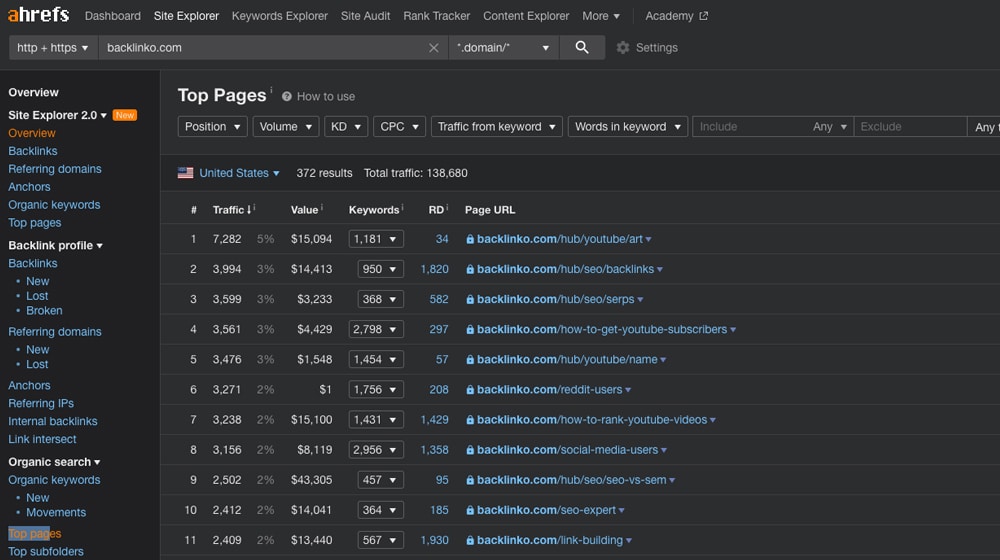
So, instead of plugging a keyword into these tools, plug in a URL. You know what the topic you're writing about is, and you know how to search for it, so search for it. Find the people ranking 1, 2, and 3 for that keyword, and scan those URLs with the mentioned tools.
What you're looking for is the percentage of traffic relevant to their other content. Is this post pulling in traffic that's worthwhile, or is it out of context for their site? I'm sure I could write a great post about dog grooming that would pull in a bunch of traffic, but it wouldn't be valuable to this site.
Critically, these are traffic numbers for the post, not for any specific keyword. If you see keyword-level traffic, you've dug too deep, and you're getting to data that is too granular to be helpful.
This broad data on a per-page basis is much more interesting than individual keyword estimations. After all, why bother trying to rank for only one particular keyword when it can naturally surface for hundreds of similar keywords? You can miss a lot of good opportunities that way.
2. Look at engagement signals.
Engagement metrics are hugely important and are a pretty good indicator of valuable traffic.
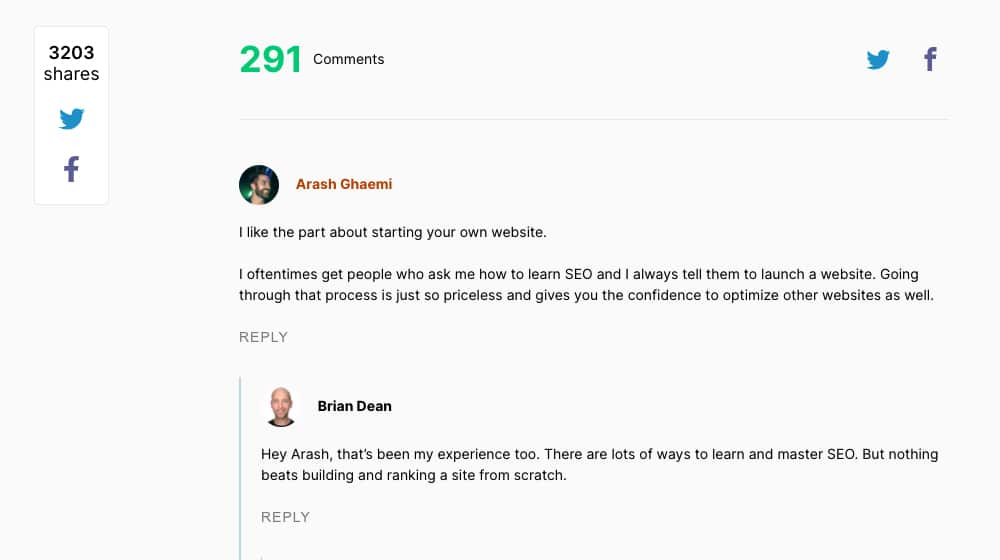
Check for things like:
- Social media shares. Be sure to check whether the site keeps its social media profiles up to date or not. However, if a post is doing very well on social media despite the company ignoring that platform, that's a sign that it's an excellent option to target.
- Blog comments. Most blogs have open comment sections, and comments give you an idea of how engaging a post is. Make sure to read each comment and the replies to those comments, though; if there's a lot of spam that the webmaster hasn't removed, it might make the post look more popular than it is. And, of course, if the site has comments disabled, this metric is unavailable, and you should move on to the next.
- Look at backlinks. I consider backlinks a sort of esoteric engagement metric, especially when considering linkbait content. After all, someone had to see and read through your post to link to it, and you can measure that engagement. Backlinks are also probably the most valuable form of engagement you can get for a post, so it's helpful to see how the top posts stack up. I often find backlinks to be one of the key indicators of a post's performance.
Other engagement metrics would be beneficial if you could see them, but you can't, such as bounce rate, time spent on site, pages per session, and so forth. I've found on my site that the posts that get the most traffic and links aren't always the best performing in terms of conversions, which makes sense, but means that the metrics you can see from outside don't tell the whole story.
Deciding if a Post is a Winner or a Loser
When you're performing topic ideation and SEO research, what you're trying to figure out is whether or not you can compete by writing about that topic. You want to predict if it's a topic that can be a winner or if it will never rank on the first ten pages of Google for any relevant keyword searches.
This decision isn't a determination that you can make purely with data. A topic with high numbers can be a loser because the competition is fierce, while a subject with low numbers can win if you can dominate the traffic that exists. It's a judgment call.
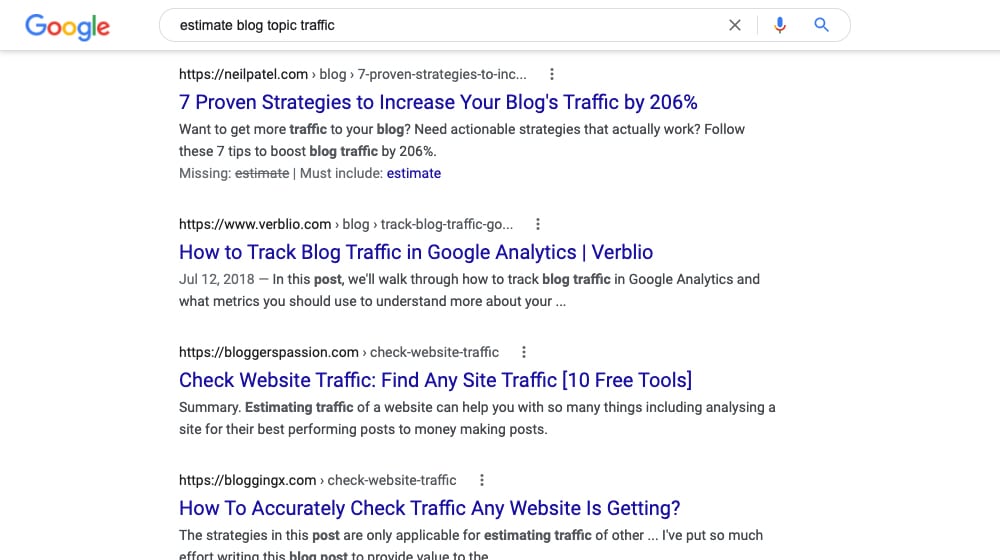
When I'm researching a topic, I consider many different aspects of the topic. Here are just a few examples:
- Keyword specificity. How narrow is the keyword, and how difficult is it to find? Some keywords get buried by LSI and can be challenging to rank for simply because Google doesn't think people search for the topic.
- How fierce is it? If the top ten results are all major sites, you're going to have a hard time ranking, especially if your site doesn't have enough overall value to stand up against them. If you're going up against massive sites with an impressive SEO presence, you might be picking a fight that you can't realistically win.
- How relevant is the topic to the rest of the content on your site? How relevant will it be for an audience member? Remember, you want your content to be part of a greater whole, and if nothing else, be worth linking to internally.
- How good of a job did competing websites do with the content? If there's a way that I can do a better job and provide a better result to the users, I may be compelled to do just that. After all, that's what's great about the internet. There's the saying, "the best way to get the right answer on the internet is to respond with the wrong answer." Somebody (that could be you) will come along and do it better, and hopefully, will provide the correct answers that will benefit the readers.
- Look at Google trends. A critical part of writing evergreen content is ensuring that it will be relevant three, five, or even ten years from now. If you're writing about a trendy topic that has a lot of searches now but didn't have any interest a few years ago, that may be a warning sign. Conversely, if interest in that topic has dwindled over a decade, that also may be a determining factor.
- Determine search intent. Traffic isn't everything, so it's a good idea to consider the type of people that will land on your website for that query. Put yourself in the shoes of somebody searching this - are they going to be interested in your other content?
Using high-end keyword research tools like Ahrefs, Moz, and SEMRush is an excellent idea if you can swing it. They can be pretty expensive, but they can make their money back in short order if you can afford them. Most agencies have these tools (and many others) in their internet marketing quiver. If you can find comparable free tools or try a free trial of the tools I've mentioned, that may be a great place to start.
Some of our best performing posts were from covering subjects that others didn't think to cover or punching above what we thought we could reasonably compete with. These are things that you learn over time from many years of successes and failures.
After you've picked the best blog topic to cover next, don't forget about optimization, creating attractive graphics, and focusing on user experience.

Creating high-quality content is more than just writing - the functionality and the experience a user has on your site are equally important. The smallest changes can have the largest impact. Even if your blog topic is a solid choice, if your title is confusing or not very relevant to the searches you're trying to attract, your CTR (click-through rate)is going to be lower than it could be.
That's why hiring an SEO and content marketing expert to manage your content may be worth it for your company blog. We can leverage our experience to make those decisions when you don't have the digital marketing background to do it on your own. If you have any questions on topic research or content strategy in general, I'd love to hear from you!
Do you have any questions for me on this subject? I reply to every comment, so if you have any technical questions or if you're wondering how to proceed with your content strategy, please drop me a line in the comment area below this post. I'll get back to you shortly with a detailed answer.



 30 Second Summary
30 Second Summary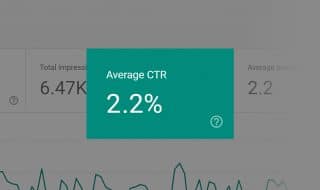


September 24, 2021 at 5:08 am
This article is very informative, updated and transparent.
What a useful information provided by this blog! It’s remarkable. Thanks for helping me out…
September 27, 2021 at 3:43 pm
Thanks Debora!
December 17, 2021 at 4:05 am
This is a great help. Thanks for sharing this!
December 22, 2021 at 1:12 am
Hey, thanks, Gamma! Love to hear it.